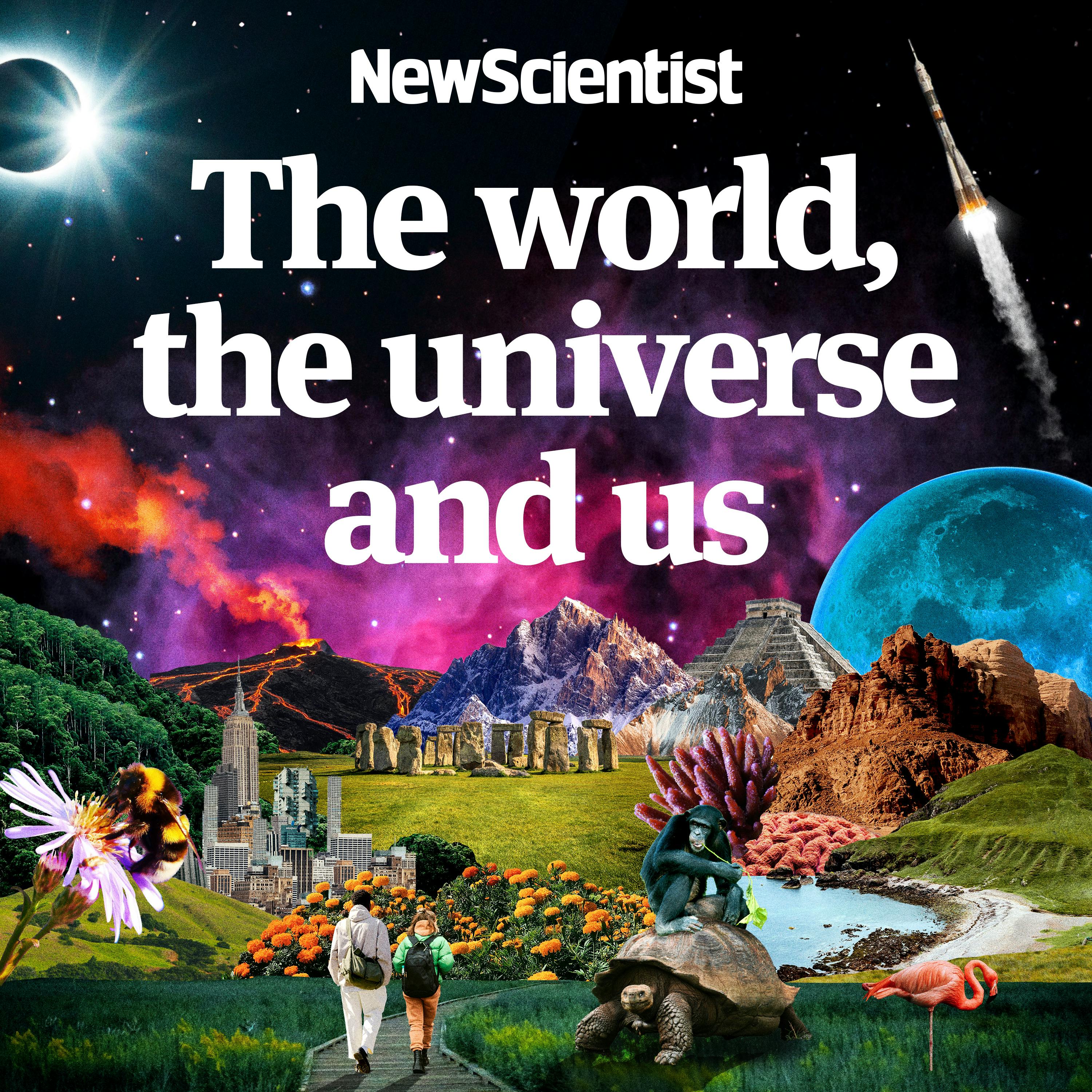

The world, the universe and us
New Scientist
From the evolution of intelligent life, to the mysteries of consciousness; from the threat of the climate crisis to the search for dark matter, The world, the universe and us is your essential weekly dose of science and wonder in an uncertain world. Hosted by journalists Dr Rowan Hooper and Dr Penny Sarchet and joined each week by expert scientists in the field, the show draws on New Scientist’s unparalleled depth of reporting to put the stories that matter into context. Feed your curiosity with the podcast that will restore your sense of optimism and nourish your brain.For more visit newscientist.com/podcasts
Episodes
Mentioned books

Feb 16, 2024 • 27min
Weekly: Reversing blindness; power beamed from space; animal love languages
Researchers have found that glaucoma may be reversible, with new optic nerve cells growing in mice. Black holes may be spinning slower than previously thought, with new estimates revealing their history. MIT has successfully converted electricity from a satellite into microwaves, potentially offering a way to generate solar power in space. Apes playfully tease each other, showing similarities to human behavior.

Feb 13, 2024 • 24min
CultureLab: Where billionaires rule the apocalypse: Naomi Alderman’s ‘The Future’
Naomi Alderman, prize-winning author of The Power, discusses her latest book, The Future, which explores a post-apocalyptic world where tech billionaires survive. They delve into the appeal of starting anew, the mysteries of human evolution, and the limitations of artificial intelligence. They also touch on lesser-known biblical stories and the impact of the pandemic on Alderman's writing project.

Feb 9, 2024 • 27min
Weekly: Record-breaking fusion experiments inch the world closer to new source of clean energy
This week, two major milestones in fusion energy were achieved, bringing us closer to practical and sustainable fusion power. The Panama Canal is experiencing shipping delays due to a historic drought, raising concerns about the impact of climate change on shipping costs and Panama's economy. Microdosing LSD leads to changes in brain activity without psychedelic effects. Other topics include unique ocean thunderstorms, a riddle about a legless animal, and the discovery of a rare Somali worm lizard.

Feb 6, 2024 • 21min
Escape Pod: #4 Mass: from lightest creates on earth, to the heaviest things in the cosmos
From lightest creatures on earth to the heaviest things in the cosmos, this podcast explores the fascinating world of mass. Topics include fairy wasps, dark matter, and the evolving definition of a kilogram.

12 snips
Feb 2, 2024 • 25min
Weekly: Alzheimer’s from contaminated injections; Musk's Neuralink begins human trials; longest living dogs
Elon Musk, founder of Neuralink and SpaceX, discusses his mind-reading brain implant company Neuralink's first human trial. Contrails from airplane flights contribute to climate change, but small changes in altitude could reduce their formation. Tiny tornadoes inside fruit fly eggs may be essential to successful reproduction. Plus, the lifespan of dogs in the UK and identifying bot-like activity on Twitter.

Jan 30, 2024 • 30min
CultureLab: Earth’s Last Great Wild Areas – Simon Reeve on BBC series ‘Wilderness’
Simon Reeve, presenter of BBC series 'Wilderness', talks about Earth's last great wild areas, including the Congo rainforest and Patagonia. He discusses indigenous communities, sustainability, interacting with nature in urban areas, and the role of travel in protecting wild areas.

4 snips
Jan 26, 2024 • 27min
Weekly: Why AI won’t take your job just yet; how sound helps fungi grow faster; chickpeas grown in moon dust for first time
The podcast discusses the limitations of AI in taking over human tasks, the surprising effect of sound on fungus growth, the consequences of abortion restrictions in the US, and the successful growth of chickpeas in moon dust.

Jan 23, 2024 • 20min
Escape Pod: #3 Music: the jazz swing of birdsong and the sonification of the orbits of planets
Delve into the intriguing world of animals making music, including the musical behavior of gorillas. Explore the similarities between bird song and human harmonies. Discover how NASA translates space data into sound. Learn about the sonification of physical processes and the mathematical harmony of notes. Explore the perception of harmonies in music and the interaction of ratios.

6 snips
Jan 19, 2024 • 27min
Weekly: Cloned rhesus monkey lives to adulthood for first time; fermented foods carry antibiotic resistant bugs; an impossible cosmic object
Cloned rhesus monkey ReTro lives to adulthood, but the method using fetal cells has limitations. Fermented foods contain antibiotic resistant bacteria, posing health risks. A mysterious object in space could be the smallest black hole or a larger neutron star. A thermodynamic computer shows promise. Tardigrades' survival mechanisms offer insights into aging and space travel.

Jan 16, 2024 • 26min
CultureLab: Breaking space records, human bowling and a trip to the Moon with astronaut Christina Koch
Christina Koch, NASA astronaut who took part in the first ever all-female spacewalks and holds the record for the longest single spaceflight by a woman, discusses her experiences in space and the challenges of readjusting to life on Earth. They also explore the long-term effects of space travel and the importance of diversity in astronaut teams. Additionally, they talk about the fun activity of human bowling in microgravity and the intense experience of spacewalking.


